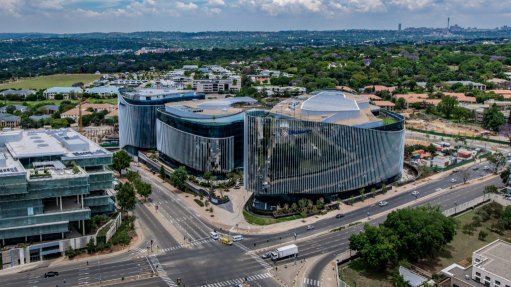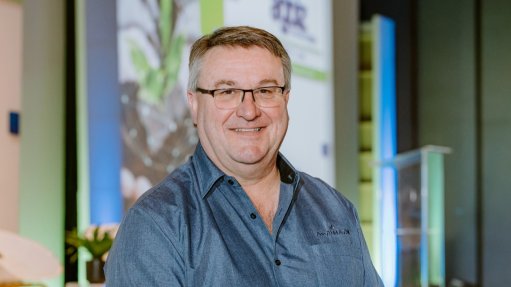South Africa’s economy may have turned a corner, but more jobs are needed
With South Africa’s unemployment rate having improved by 0.6 of a percentage point to 33.9% in the second quarter, Standard Bank CEO Sim Tshabalala has said the country’s economy may well have turned a corner.
However, job creation remains an urgent priority.
Speaking at the Solutions Exchange conference, in Johannesburg, on November 10, hosted by nonprofit social enterprise Harambee Youth Employment Accelerator, in collaboration with the project management office in the Presidency responsible for the Presidential Youth Employment Intervention, the Public/Private Growth Initiative and the Mapungubwe Institute for Strategic Reflection, Tshabalala said there remained strong incentives to accelerate some of the positive trends that had begun to emerge.
The Solutions Exchange event convened critical national leaders from the private, public, and civil society sectors to find solutions to the national youth unemployment crisis.
This year’s conference was themed “Partnering to Pathway Youth into Economic Opportunities”.
“The medium-term budget speech demonstrated that it's clear that our country is back on the way to fiscal health. Our economists at Standard Bank think that inflation is key and they agree with the National Treasury that the economy has the potential to grow considerably faster as structural reforms take hold. There's been a great deal of structural and government reform over the last couple of years,” he said.
He noted, however, that despite the slight improvement, South Africa’s unemployment rate remains among the highest globally.
“It is a tragic waste of human potential. It's also a very serious political and economic risk, pushing our politics in the direction of populism, reducing investor and business confidence, increasing the cost of borrowing, and slowing growth and job creation,” Tshabalala said.
He highlighted, however, how unexpected it was that a country with 33.9% unemployment and 46.5% youth unemployment has not suffered from more social and political instability than experienced thus far.
“Despite the immense scale of the problem, it is incumbent on every South African institution to take some direct action, no matter how small,” he said, emphasising the impact of multiplier effects to job creation, such as financial and social multiplier effects.
“I think there's a very strong case for scaling up job-readiness and internship programmes, and for using public money to do so,” Tshabalala said.
He referred to Canada's Youth Employment Programme, which pays firms to hire graduates for a year of on-the-job training.
He said a good way of keeping both efficiency and scale was through the use of social models.
“This is why Standard Bank is one of Harambee’s partners in the Bond for Jobs programme,” he said.
Tshabala explained that social bonds had three advantages over more traditional means of funding.
First, since they pay out early upon the achievement of the specified goal, they create strong incentives for service providers to be efficient.
Second, because their payouts are conditional, they are less expensive to their funders than unconditional bonds.
Third, they create the possibility that public money could raise additional funding from other sources.
He said there were significant opportunities that South Africa needed to act on to reinvigorate the economy and create opportunities for more jobs.
“South Africa's industrialisation in the twentieth century is a story about bringing together politically repressed cheap labour with abundant precious metals and even more abundant coal-fuelled energy.
“South Africa is very well endowed with the sunlight, platinum group metals and rare earths needed to generate sustainable energy. We should use these to the maximum, both in the domestic economy and for export. There are massive opportunities to that end,” Tshabalala said.
He noted that the most competitive and dynamic economies were those which were able to produce a relatively small number of world-class scientists and engineers, a much larger number of working practical technicians, along with an entire youth population that can read and do basic arithmetic quickly and accurately.
Higher Education and Training Deputy Minister Buti Manamela, meanwhile, told delegates at the Solutions Exchange that realising some of the aspirations of Tshabalala and other speakers would require working together.
“I think at the core is social compacting and the ability of both government and the private sector to make things move,” he said.
He said the combined impacts of Covid-19, slow economic growth and the war between Russia and Ukraine have caused the cost of living in South Africa to balloon, which he said had a devastating impact on young people's ability to create sustainable livelihoods and become active contributors to the country's economy.
“This imposes on us the obligation to ensure that we make as many young people as possible engaged in sustainable and productive activities. So as government, we've been working tirelessly to ensure that there are a number of development opportunities available for young people,” he said, adding that the focus had been on developing demand-led skills directly or closely linked to identified or confirmed economic opportunities, whether full-time or part-time jobs.
Manamela said that, an integral part of the Presidential Youth Employment Intervention included spending several years partnering with a few key stakeholders, with the aim of getting “all hands on deck" to develop and implement what he called a "pay for performance model for outcomes-based skilling to unlock opportunities for young people".
Some of the stakeholders that were partnered with included the Project Management Office of the Presidency, Department of Employment and Labour, the National Skills Fund, the National Youth Development Agency, the Youth Employment Service and Harambee, besides other.
“This initiative focuses on the development of flexible demand-led skills training that can be rapidly implemented to get more young people work ready. This training not only focuses on technical skills required in growth sectors but also prepares candidates to succeed in employment generally,” Manamela said.
He said there was now a greater focus on training young people in the skills that South Africa needed, adding that it would also help young people to be able to function intelligently in a world that is becoming increasingly digitised and more complex.
“The benefits of relevant skills training is that young people will be more employable,” he said.
Article Enquiry
Email Article
Save Article
Feedback
To advertise email advertising@creamermedia.co.za or click here
Comments
Announcements
What's On
Subscribe to improve your user experience...
Option 1 (equivalent of R125 a month):
Receive a weekly copy of Creamer Media's Engineering News & Mining Weekly magazine
(print copy for those in South Africa and e-magazine for those outside of South Africa)
Receive daily email newsletters
Access to full search results
Access archive of magazine back copies
Access to Projects in Progress
Access to ONE Research Report of your choice in PDF format
Option 2 (equivalent of R375 a month):
All benefits from Option 1
PLUS
Access to Creamer Media's Research Channel Africa for ALL Research Reports, in PDF format, on various industrial and mining sectors
including Electricity; Water; Energy Transition; Hydrogen; Roads, Rail and Ports; Coal; Gold; Platinum; Battery Metals; etc.
Already a subscriber?
Forgotten your password?
Receive weekly copy of Creamer Media's Engineering News & Mining Weekly magazine (print copy for those in South Africa and e-magazine for those outside of South Africa)
➕
Recieve daily email newsletters
➕
Access to full search results
➕
Access archive of magazine back copies
➕
Access to Projects in Progress
➕
Access to ONE Research Report of your choice in PDF format
RESEARCH CHANNEL AFRICA
R4500 (equivalent of R375 a month)
SUBSCRIBEAll benefits from Option 1
➕
Access to Creamer Media's Research Channel Africa for ALL Research Reports on various industrial and mining sectors, in PDF format, including on:
Electricity
➕
Water
➕
Energy Transition
➕
Hydrogen
➕
Roads, Rail and Ports
➕
Coal
➕
Gold
➕
Platinum
➕
Battery Metals
➕
etc.
Receive all benefits from Option 1 or Option 2 delivered to numerous people at your company
➕
Multiple User names and Passwords for simultaneous log-ins
➕
Intranet integration access to all in your organisation





















